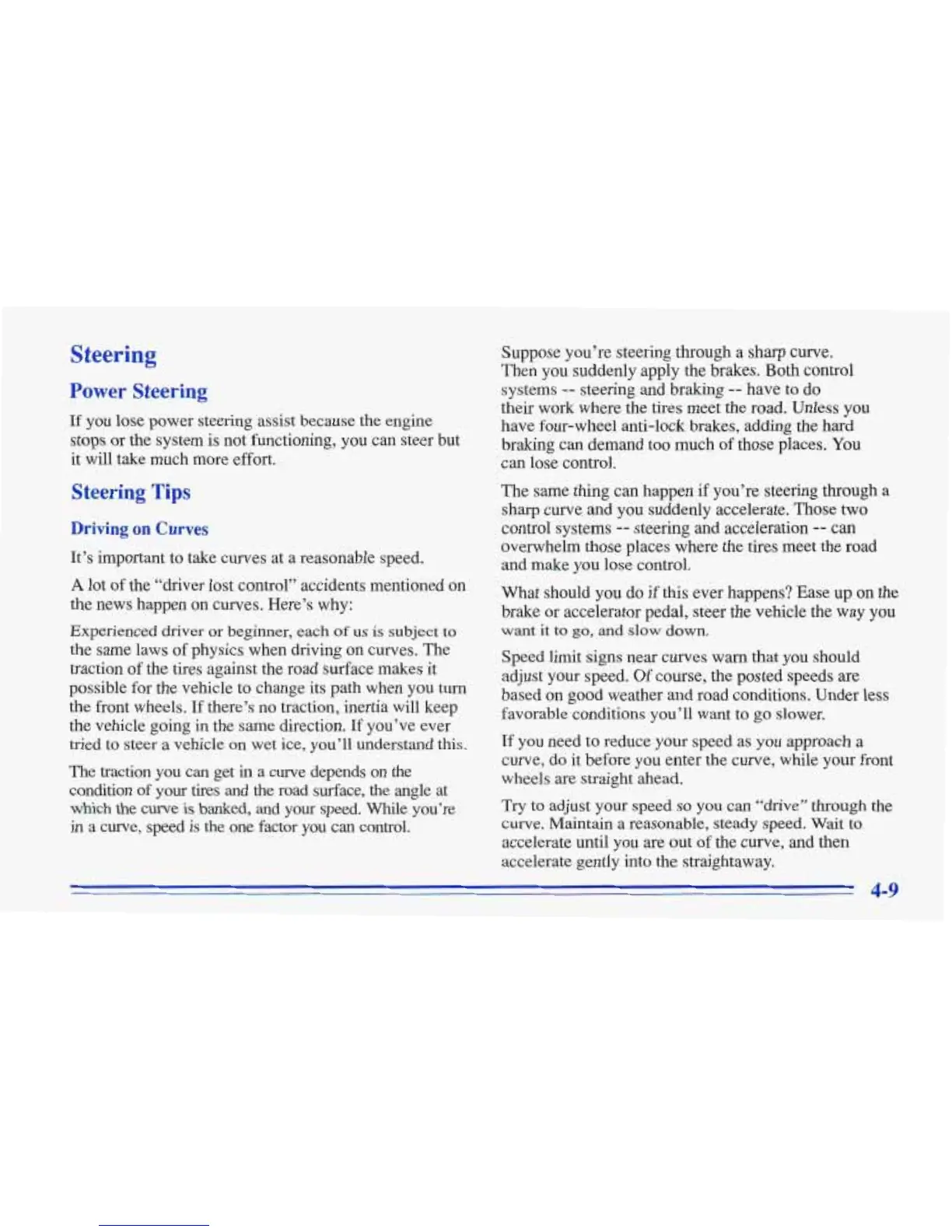Steering
Power Steering
If
you lose power steering assist because the engine
stops or the system is not functioning, you can steer but
it will take much more effort.
Steering
Tips
Driving
on
Curves
It’s important to take curves at a reasonable speed.
A
lot of the “driver lost control” accidents mentioned on
the news happen on curves. Here’s why:
Experienced
driver
or
beginner,
each
of
us
is
subject
to
the same laws of physics when driving on curves. The
traction of the tires against the road surface makes it
possible for the vehicle to change.its path when you turn
the front wheels.
If
there’s no traction, inertia will keep
the vehicle going in the same direction.
If
you’ve ever
tried
to
steer
a
vehicle on
wet
ice, you’ll understand this.
The
traction you can get
in
a curve depends on the
condition
of
your tires and the road surface, the angle at
which
the
curve
is
banked,
and your speed.
While
you’re
in
a curve, speed is the one factor you can control.
Suppose you’re steering through a sharp curve.
Then you suddenly apply the brakes. Both control
systems
--
steering and braking -- have to do
their work where the tires meet the road. Unless
you
have four-wheel anti-lock brakes, adding
the
hard
braking can demand too much
of
those places. You
can lose control.
The same thing can happen if you’re steering through
a
sharp curve. and you suddenly accelerate. Those two
control systems
--
steering
and
acceleration
--
can
overwhelm those places where the tires meet the road
and make you lose control.
What should you do
if
this ever happens? Ease up on the
brake or accelerator pedal, steer the vehicle the way you
want
it
to
go,
and
slow.
down.
Speed limit signs near curves warn that you should
adjust your speed. Of course, the posted speeds
are
based on good weather and road conditions. Under less
favorable conditions you’ll want to
go
slower.
If
you need
to
reduce your speed as you approach a
curve, do it before you enter the curve, while your front
wheels are straight ahead.
Try to adjust your speed
so
you can
“drive”
though the
curve.
Maintain a reasonable, steady speed.
Wait
to
accelerate until you
are
out
of
the curve, and then
accelerate gently into the straightaway.
4-9
